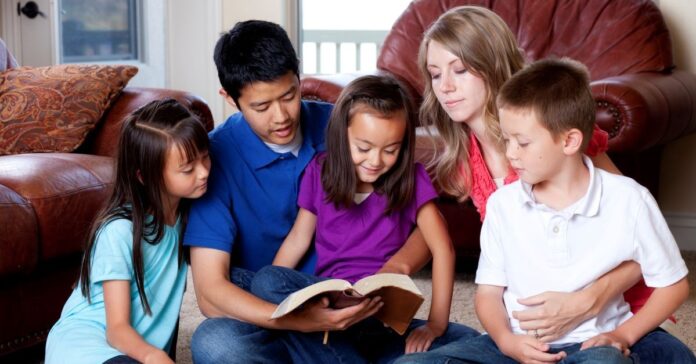Parents have the primary role and the most important responsibility in the faith-formation of their children. Nowadays it is a very difficult and overwhelming task. Here are a few basic ideas parents should know about the faith formation of their children.
- Children ‘Catch’ Faith
It is often said that children do not “learn” faith, they “catch” faith. In fact, this is absolutely correct in the case of human beings at any age. Human persons come to faith first of all through personal experience. Coming to faith always begins in the heart, and it is always the result of a personal experience or encounter which mediates or reveals the deeper mysteries of God’s presence and love.
2. Words Describe our Experiences
As faith communities reflect on their experience, they develop certain statements about their faith which describe their faith experience. These statements are expressed in the Creed or doctrines of faith. Faith statements are not the same as facts that we can ‘prove’; they are statements of belief that express what we have chosen to believe and they explain the mysteries of life in a way that makes sense for us.
3. Faith Grows and Develops
We are not born with faith. Faith is ‘planted’; it grows and develops as we grow, and it changes along with age. The faith of a young child is different from the faith of an older child, a young adult, or a mature adult. This growth occurs because our experience of faith and our ability to consciously reflect on, or think about faith develops gradually along with the age. As a parent, you need to understand how faith grows and changes so that you can provide with what your child needs at various stages in his or her faith development.
4. The Early Years Are the Most Important
The first four or five years of life are critically important in a child’s faith formation. Long before a child can think about faith, he or she is developing basic perceptions and attitudes about reality which may or may not be consistent with what they will later learn about faith. Many experts agree this experience begins before birth, in a pre-conscious or sub-conscience way, while the child is growing in the womb. No one has more influence over these pre-birth and early life experiences than parents and others responsible for the child’s primary care.
- It’s Up to You
Faith shapes how we feel and how we think; helping our children grow in faith means assisting them do these four things: experience faith, learn faith, express faith, and act with faith. In the past, nurturing faith would focus primarily on helping children experience and express faith. The ability to learn and act with faith develops gradually as the child’s ability to think and choose develops. Everything else, including formal religious education, depends on this experience. Religious professionals can teach your child about faith, but they cannot give your child the fundamental experience of faith that he or she receives in your home.
6. You Can Do it
Be assured, you have the ability to provide with whatever is needed to develop a vibrant faith in your child. The first thing you need to do is be a parent — to do what children need parents to do: to love them, protect them, guide them, show them how much they are valued as a child of God, and invite them to share their gifts and talents with others as a sign of God’s generosity.
7. The Keys to Success
Rituals and traditions, which help children experience their faith; caring conversations, which help children learn about their faith; prayer, which helps children express their faith; and serving others, which helps children act with faith.



